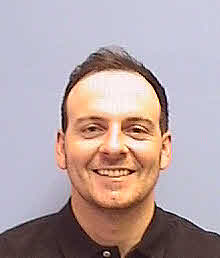Resident Supervision
The Residency Supervision Area is designed to assist hospitals and clinics with the protocols outlined for specific duties residents and fellows can perform. These guidelines are determined by the faculty of the University of Tennessee Health Science Center. Any questions about certain procedures not listed should be addressed to the faculty and not decided by the resident or fellow.
A credentialed and privileged attending physician ultimately provides supervision or oversight of each resident's patient care activities. Direct supervision by a qualified attending physician is required in the OR/Delivery Room or for non-routine invasive procedures like Cardiac Cath, Endoscopy, and Interventional Radiology. The standards for resident supervision in patient care settings are described in GME Policy #410.

Rogero, Ryan - PGY - 5
Department of Orthopaedic Surgery
Resident Supervision
PGY 2, 3, 4, or 5 Orthopaedic Surgery trainees can perform the procedures listed below with indirect supervision:
|
|
PGY2 |
PGY3 |
PGY4 |
PGY5 |
|
Diagnosis: |
||||
|
1. Clinical history |
X |
X |
X |
X |
|
2. Physical examination |
X |
X |
X |
X |
|
3. Interpretation of imaging studies (radiographs, bone scan, CT, MRI) |
X |
X |
X |
X |
|
4. Nonoperative and operative treatment plans |
X |
X |
X |
X |
|
5. Protocols for rehabilitation |
X |
X |
X |
X |
|
6. Coordination of treatment with other disciplines |
X |
X |
X |
X |
|
7. Communication with pediatric patients and their families |
X |
X |
X |
X |
|
8. Triage of pediatric trauma patients |
X |
X |
X |
X |
|
9. Interpretation of specialized tests and maneuvers for diagnosis in children and adolescents |
X |
X |
X |
X |
|
10. Differentiation of normal growth variants from pathologic conditions |
X |
X |
X |
X |
|
Orthopaedic procedures: |
||||
|
1. Joint injection techniques |
X |
X |
X |
X |
|
2. Injection techniques for degenerative/inflammatory soft-tissue conditions (DeQuervain's, carpal tunnel, tendonosis, tendonitis, tenosynovitis) |
X |
X |
X |
X |
|
3. Traction techniques |
X |
X |
X |
X |
|
4. Local block anesthesia |
X |
X |
X |
X |
|
5. Foreign body removal |
X |
X |
X |
X |
|
6. Splinting/casting of fractures and dislocations |
X |
X |
X |
X |
|
7. Emergency closed reduction techniques |
X |
X |
X |
X |
|
8. Joint aspiration (ankle, knee, hip, wrist, elbow, shoulder) |
X |
X |
X |
X |
|
All other procedures are performed under direct supervision of a faculty member. |
||||
Senior (PGY 4-6) trainees are allowed to take cases under indirect supervision at the discretion of the attending surgeon.
Resident Oversight Exception
Resident Oversight During Surgical Cases
I. Resident Oversight During Surgical Cases
A. If a resident or fellow is performing the procedure, the following must apply:
1. The departmental attending must be notified prior to the scheduling of the procedure.
2. The departmental attending physician must physically be present, within the facility where the procedure occurs, for the major components of the procedure and the degree of involvement documented.
3. The anesthesiologist or any member of the surgical team may, at any time, request the presence of the departmental attending in the OR.
4. In emergency cases where immediate care is initiated to preserve life or prevent impairment, the procedure is initiated with the departmental attending contacted and in route.
5. Resident surgical cases will be tracked monthly for type, service, acuity, attending presence at any time during the procedure and clinical outcomes. These will be forwarded to the graduate medical education office, the appropriate division heads and the quality management committee.
B. The Departments of Orthopedics and Plastic Surgery have MEC approved exceptions to the above and are as follows:
1. Orthopedic PGY 4 and 5 residents may perform emergency surgery for fractures and infections under general supervision (under the attending staff member’s overall direction and control but the attending physician’s presence is not required at the time of care).
2. Plastic Surgery PGY 6 and 7 residents may perform specific emergency trauma surgeries under general supervision – nasal bone fracture, facial laceration soft tissue acute repair, and mandible – alveolar ridge fracture (PGY7 only).
C. The University of Tennessee College of Medicine Graduate Medical Education Resident Supervision Policy will be followed in all cases.
II. Resident Oversight Exception Policy
When an exception (as outlined above) is involved, any occurrences of adverse outcomes will be referred to the Peer Review Oversight Committee (PROC) for review. The PROC may take any/all of the following actions:
1. Refer to department for peer review.
2. In the event of an unanticipated complication, mortality, or a trend of complications the PROC may recommend to the Chief of Staff that a precautionary suspension (including loss of privileges) by issued to the supervising physician. The supervising physician may attend the next MEC Executive Session to discuss the case. The MEC may make recommendation to the supervising physician and/or revisions to the resident oversight exceptions as a result of their review.
